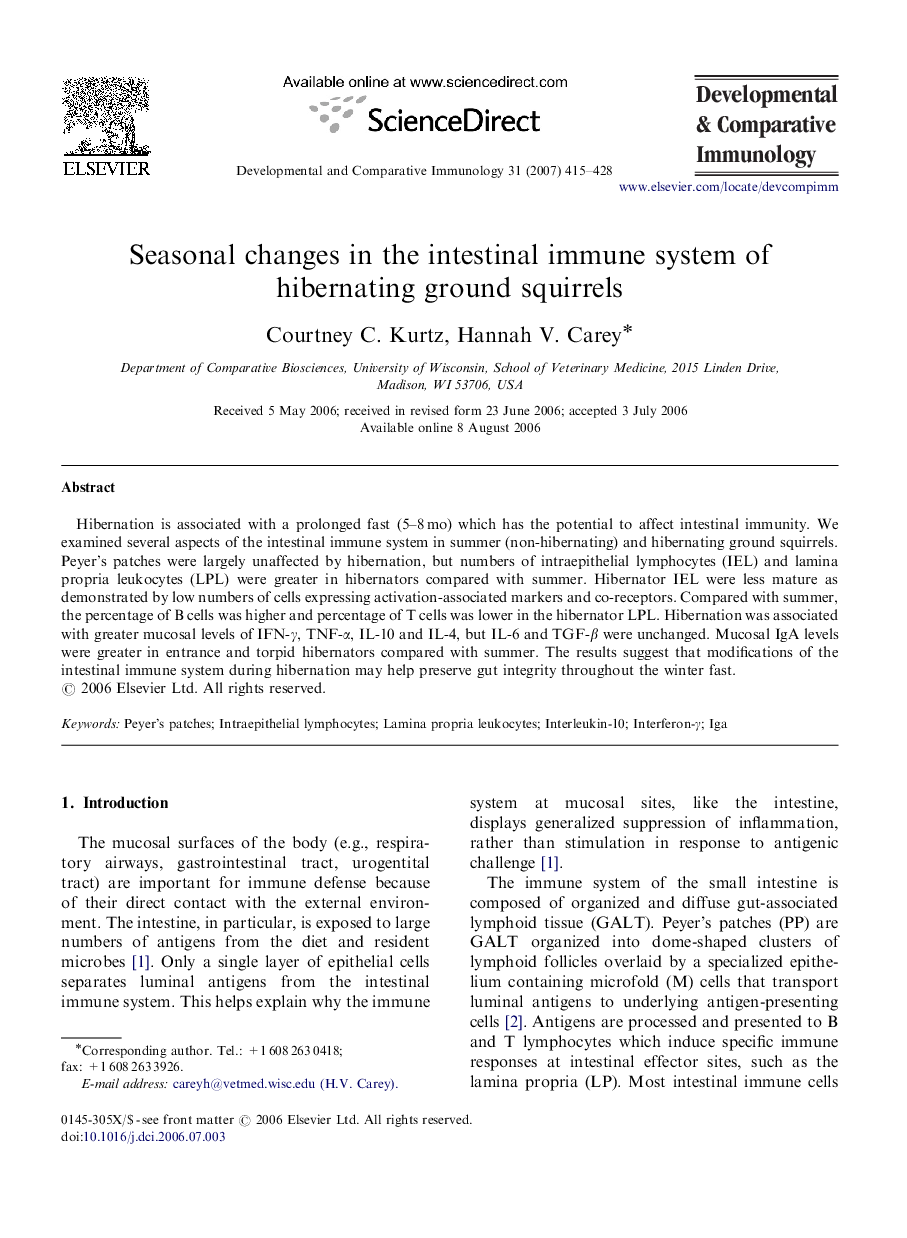| Article ID | Journal | Published Year | Pages | File Type |
|---|---|---|---|---|
| 2430337 | Developmental & Comparative Immunology | 2007 | 14 Pages |
Hibernation is associated with a prolonged fast (5–8 mo) which has the potential to affect intestinal immunity. We examined several aspects of the intestinal immune system in summer (non-hibernating) and hibernating ground squirrels. Peyer's patches were largely unaffected by hibernation, but numbers of intraepithelial lymphocytes (IEL) and lamina propria leukocytes (LPL) were greater in hibernators compared with summer. Hibernator IEL were less mature as demonstrated by low numbers of cells expressing activation-associated markers and co-receptors. Compared with summer, the percentage of B cells was higher and percentage of T cells was lower in the hibernator LPL. Hibernation was associated with greater mucosal levels of IFN-γ, TNF-α, IL-10 and IL-4, but IL-6 and TGF-β were unchanged. Mucosal IgA levels were greater in entrance and torpid hibernators compared with summer. The results suggest that modifications of the intestinal immune system during hibernation may help preserve gut integrity throughout the winter fast.
